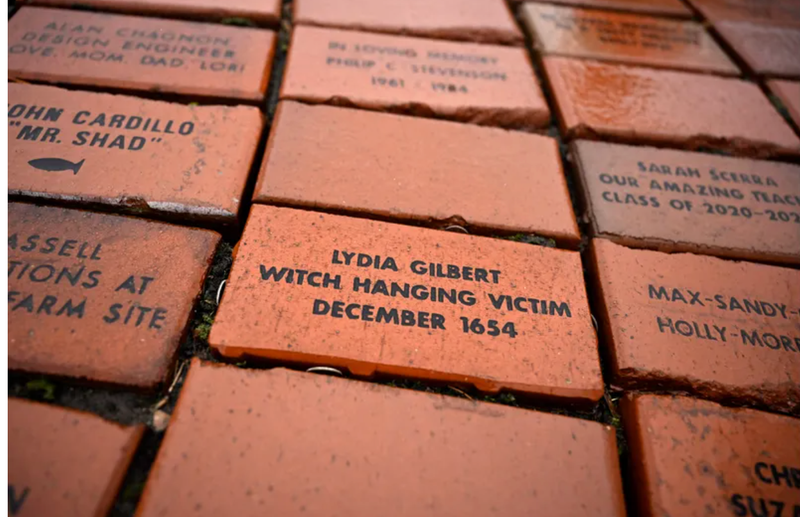
HARTFORD, Conn. (1010 WINS) — A bill apologizing for Connecticut’s 17th-century witch trials has advanced in the state legislature despite some Republican lawmakers’ opposition.
Alice Young was the first recorded person in the thirteen American colonies to be hanged for allegedly being a witch, more than 375 years ago.
Sherry Kuiper, Young's 10th great-granddaughter, is grateful that Connecticut lawmakers are considering the symbolic resolution, an apology.
"It would just be really nice as a descendant to just see that recognition from our leaders, but this was something that should have never happened, and then just to really have a platform and an opportunity to continue the education, cause I still think in 2023 a lot of people don't really know much about the witch trials and what they meant and what they really were," said Kuiper.
The bill, which would exonerate "all alleged crimes" and recognize their innocence, was passed by the state's House Judiciary Committee 28-9 on Monday afternoon and now moves to the House of Representatives.
Connecticut's witch trials were held in the mid-to-late 1600s. In each of the New England colonies, witchcraft was considered a capital offense. According to the earliest laws in the colony of Connecticut, "any man or women (to) bee a Witch, that is, hath or consulteth with a familiar spirit, they shall bee put to death."
Many historians believe fear and anxiety among the religiously strict English settlers led to the witch trials, noting how life was very difficult, given epidemics, floods, cold winters and starvation. Often, accusations started as a quarrel, or the death of a child or a cow, or even butter that couldn't be churned.
Many of the people executed as witches were poor, single mothers.
However, a minority of Republican lawmakers are skeptical and opposed to the legislation, according to CT Insider.
Rep. Craig Fishbein, of Wallingford, a top Republican on the committee, was among those opposed, as were state Reps. Doug Dubitsky of Chaplin, Tom O'Dea of New Canaan and Patrick Callahan of New Fairfield.
Fishbein argued that the legislation should be left to Great Britain because Connecticut did not become a state until after the American Revolution, more than a century after the prosecution and execution of 11 people, two of whom were men.
"When one asks for an apology, one asks the individual who did them harm," he said. "Here, this resolution before us, says the state of Connecticut apologizes. The state of Connecticut actually had nothing to do with this. ... We were a colony at the time of this. If you really wanted to do something, you'd go to Great Britain and ask to apologize. It's like someone stealing a car and asking the neighbor to apologize, who had nothing to do with it."
Democratic State Rep. Steve Stafstrom, co-chairman of the committee, said the resolution is an "expression of sympathy toward the descendents of those individuals, some of whom continue to live in Connecticut and came and testified before this committee."
"It's an acknowledgement of mob mentality, folks who were punished for non-conformity," Stafstrom added. "Folks who were the victim of misogyny, who were ridiculed for adultery and generally have been victimized as a result of conduct that in large measure would not be considered criminal in today's state of Connecticut."
The Associated Press contributed to this report.



